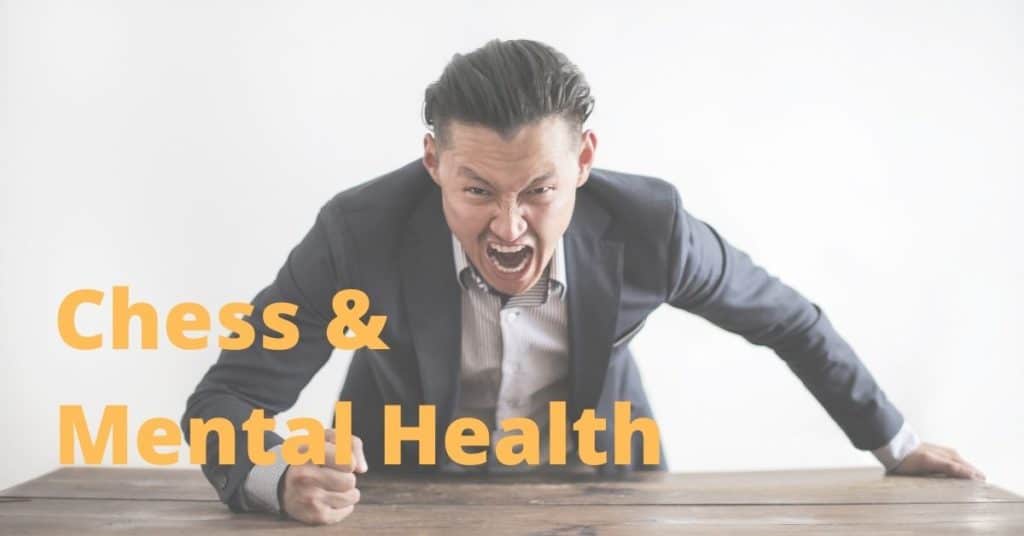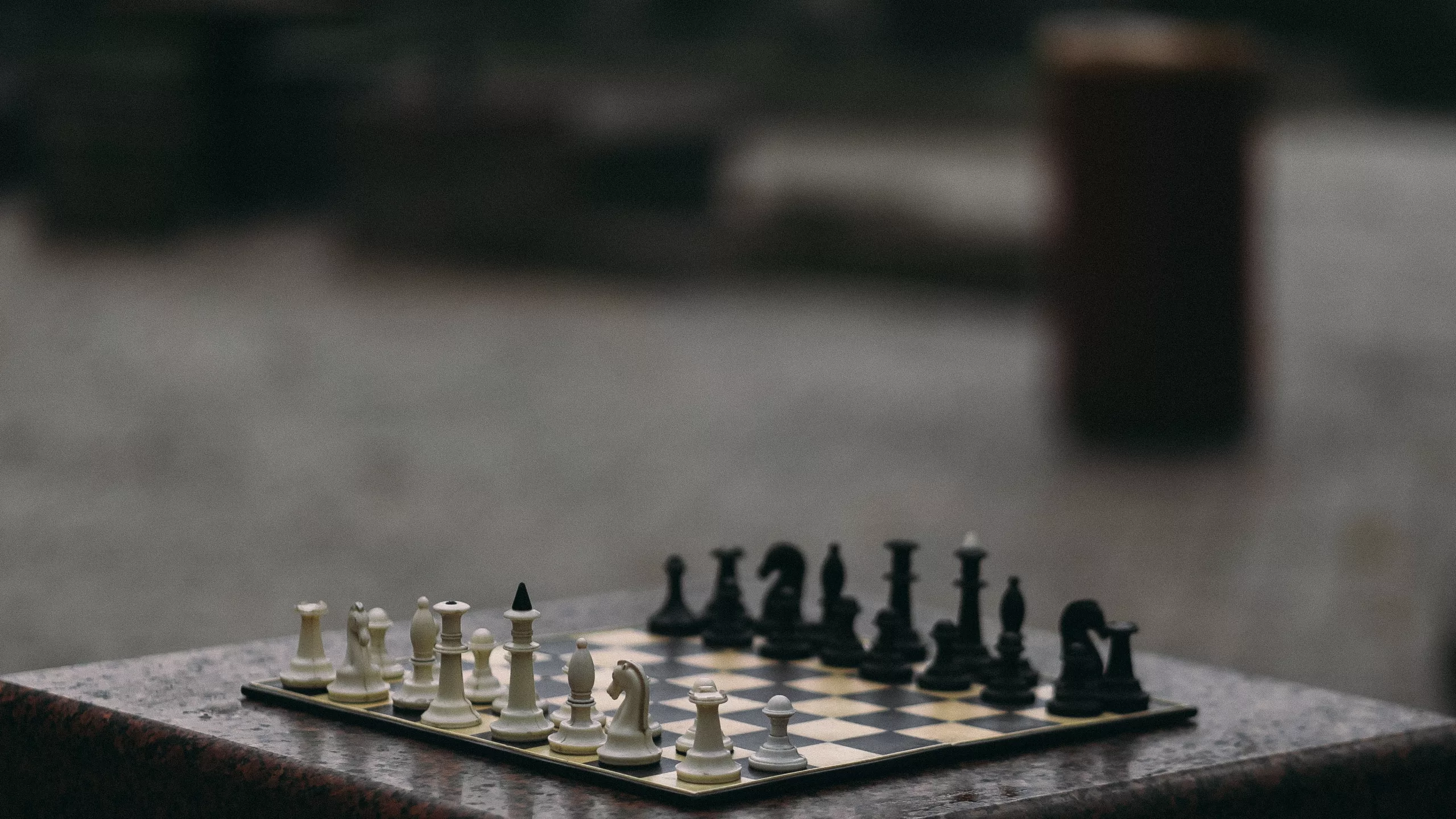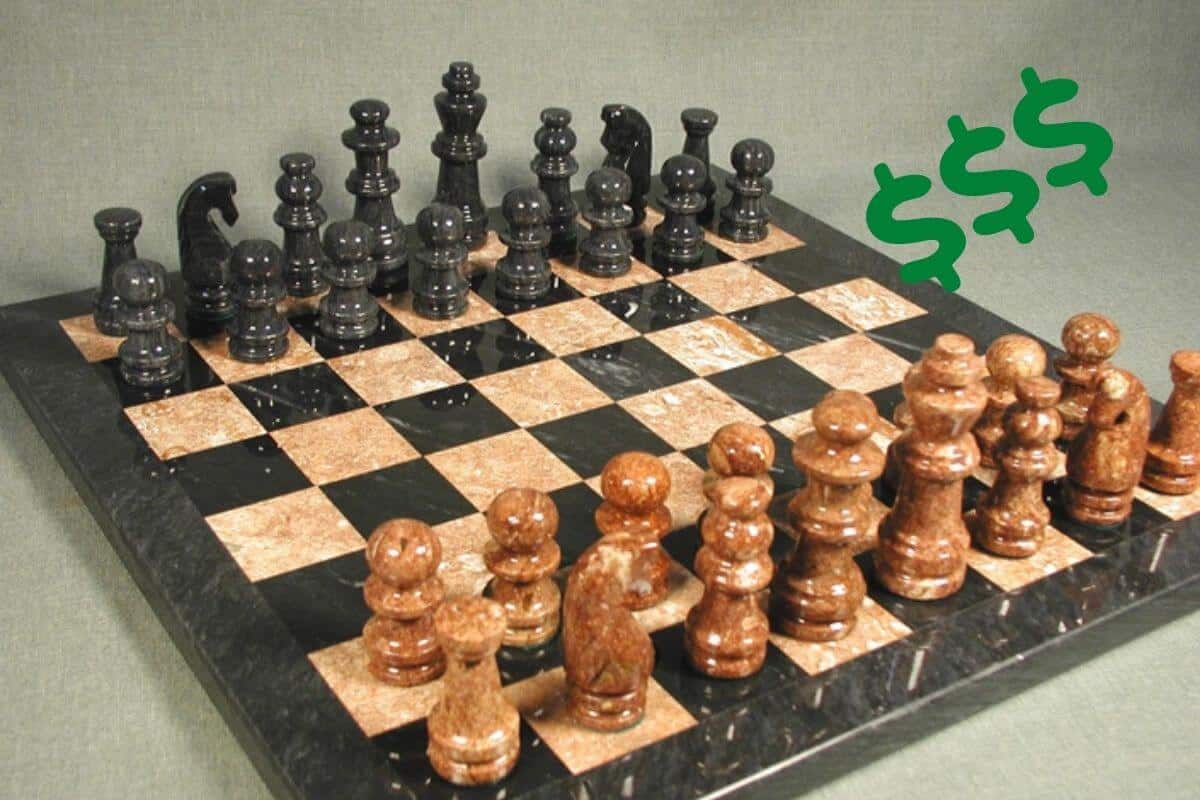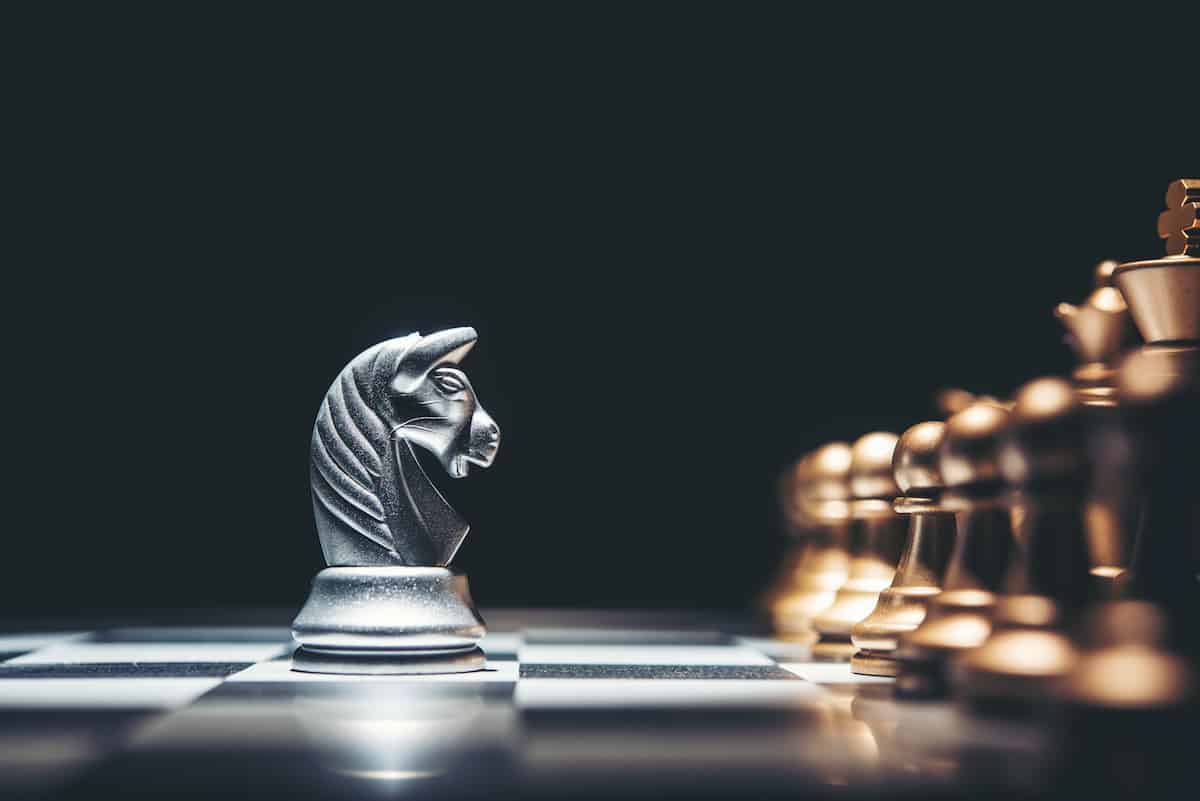Some of our old chess veterans such as Fischer and Nimzowitsch have known to have fallen eccentric after retirement. This leads us to the question, can chess make you crazy?
While there are no scientific evidence to prove that chess makes one crazy, it is clear that the complications of the game as well as the 64 alternating colored squares can take a toll on someone’s psyche. If you are not careful enough, you could find yourself internalizing variations and having dialogues out loud.
In this article I’ve put together 9 reasons why the game of chess could drive anyone crazy. If you find that you are exhibiting 2 or more symptoms as listed below, then I highly recommend you give chess a break.
9 Reasons Chess Can Make You Crazy
1. Too much time spent internally
Some health experts will tell you that spending too much time internally could cause some mental damage. When you are playing chess with an opponent, you spend most of the time inside your own head. Most of this time is usually spent to analyse the position of the pieces and to calculate 3,4,5 moves ahead.
While this is a good exercise for the mind, it is important that you carefully consider NOT to overextend your neural membranes. If you find yourself spending way too much time internalizing the chess game, it’s best to follow your intuition and go for the move that feels right.
2. Calculating is painful and exhausting to the mind
Calculating is a mental exercise that every chess player performs when trying to figure out the right move in a position.
“If I move here, then my opponent moves there” is one simple monologue that most players use to calculate. As you climb higher up the rankings, you will find that stronger players can calculate up to 8 moves deep. Therefore you will have to keep up at their pace if you stand a chance of surviving complicated positions.
Reigning world champion, Magnus Carlsen, is one such player that can calculate up to 8 moves deep. If you are in a match with Carlsen, the complications could be so intense that it makes your mind burn and you’ll have to concentrate every fiber of your being into making the correct move. That’s how painful and exhausting calculating in chess can be.
3. You have too many conversations in your head while over the board
Chess can make you develop a nasty habit of conversing with yourself, which could extend outside the chess world and into your daily activities. Nothing is wrong with talking to yourself, but if you notice that you are replying back, then it’s a good idea to put down chess for a month or two and concentrate your energy somewhere else. You wouldn’t want a game to be the cause of your insanity, so its best that you approach chess in small portions.
4. You play blindfold chess with yourself
I do encourage my students to play chess by themselves so that they can understand the nuances and plans of both sides. However playing blindfold chess by yourself could be a little bit too far, as this could cause more mental strain and worse, internal conflicts. If you practice this regularly, you could find yourself sparking up a random chess match and talking back and forth to yourself while strolling along a busy sidewalk. This is NOT a great sight to see and people might think you are crazy.
If you are going to play blindfold chess, then its best to play it against an actual opponent and NOT by yourself. Blindfold chess is quite common and is a training technique used by many grandmasters to develop visualization and memory.
5. Memorizing too much openings
Just like cramming the night before an exam, memorizing too much opening lines and theory could have a negative effect on your mental well being. Because there is so much openings to remember, you will always have to be going back in your mind to try and recall a specific opening variation.
If you find yourself struggling to remember opening theory, then it’s best that you concentrate your energy to another aspect of the chess game such as the middlegame or endgame theory. It just isn’t healthy. Not only is memorizing openings unhealthy, you could waste plenty of time learning different openings that you forget to focus on the most important thing that matter for your chess improvement, and that is your positional understanding of the game.
6. You spend too much time with chess that you forget about the real world
Chess can be a drug for some people in order to escape the realities of this world. I know players who go a whole day playing chess with little to no breaks. This can be bad, and we should always do things in portions, not only just in chess but in our daily lives. We have to remember that ourselves come first. The next time you set out to complete a marathon of chess games, do a couple exercises in between, get some sunshine by taking a walk in your community or even do couple minutes of meditation. These activities can really uplift your mood and spirit!
7. Losing a chess match could drives you insane
When you lose a chess match, it could be one of the worst feelings to have. But why is this so? Well according to science experts, if you dedicate or invest your energy into something long enough, you will find yourself being emotionally attached to that thing. The act of losing such an investment can trigger an intense emotion which can last for days if not months. This is why most people get emotional after a breakup because they have committed themselves for quite some time.
So after losing a 8 hours chess game you can now see why grown men cry. While it’s perfectly fine for grown adults to cry over their result from a chess match, it is important that we don’t allow the defeat to get to us mentally. Everyone have suffered defeats in the their career, even the World Champion, Magnus Carlsen have had countable occasions where he lost to weaker players.
8. The complexities of the game can make you crazy
Chess is a very complicated game since the number of possible games of chess is greater than the number of atoms in the observable universe. That number is quite staggering and it goes to show that chess is far more matrixed out than anything you could imagine.
We should be careful though when diving deep into the complexities of the game as we don’t want to end up like a mad person on the street. This is why our former masters have developed principles that will keep us along the right paths to making the correct move. When you understand the principles of the chess game, you literally reduce the time spent calculating by more than 50%.
9. The alternated squares on the chessboard could serve as a hypnosis
Staring at 64 squares day in and day out can take a toll on someone’s psyche. This might sound like a conspiracy theory, but there are many occasions where checkered patterns can hypnotize and even brainwash people. You see them in movies and in cartoons. But could this be true for the game of chess? Is this the reason why some of our favorite grandmasters like Fischer and Alekhine fell eccentric after retirement?
…I hope not.
Post you may like: Why do I always lose at chess






